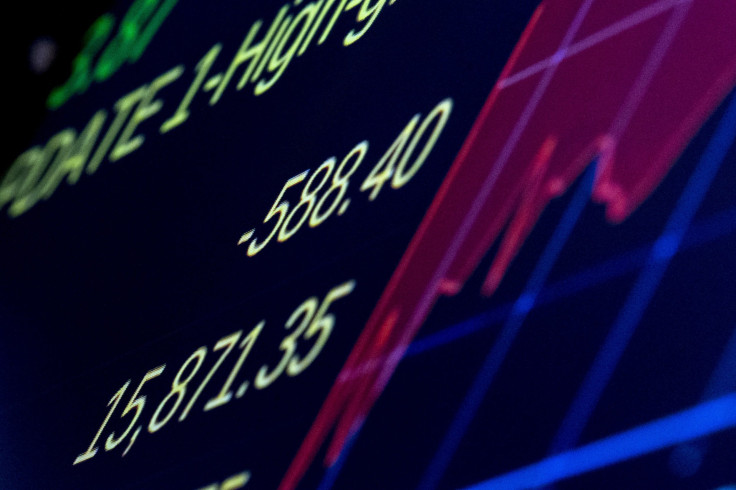In Silicon Valley, Where Optimism Reigns, Tech Pros Shrug Off Nasdaq Woes, China Worries

SAN FRANCISCO -- Talk to tech workers about the stock market’s travails and you'll get some blank stares. That's how little Silicon Valley is concerned with Wall Street’s sell-off, which to many in the Bay Area feels remote and unlikely to have a significant impact on their lives. That’s despite the fact that big names like Netflix, Twitter, Amazon, Microsoft and, most notably, Apple, have been caught in the carnage. The sell-off began Monday and bled into Tuesday, when the tech-heavy Nasdaq fell 19.76 points.
“Overall the industry does not care,” said Tasso Roumeliotis, CEO of Location Labs, an Emeryville, California, mobile security firm.
Many tech pros view Wall Street’s turmoil as an overdue correction that should have minimal impact on their wealth over the long term. Some may see their company’s IPOs get delayed as investors wait for the market to recover. Stock options, the coin of the realm in Silicon Valley, may take some hits should markets continue to struggle. But even as trading seesawed again Tuesday, technology industry workers showed little sign of panic.
“I have a very strong feeling of a ‘yawn’ in my reaction to this, especially if you’ve lived through any of the other ups and downs, and unlike the 2000 bubble, of which I was a very active part, there are real companies doing real business,” said John Mracek, CEO of NetSeer, based in Mountain View, an online media and audience-targeting company. “People who have been through it before are kind of like ‘OK. Not a big deal.’ ”
Not that there aren’t causes for concern. Most of the valley’s tech giants are vulnerable to the kinds of overseas slowdowns that are roiling the markets. China, where a Monday stock sell-off spread to global exchanges, is now the biggest market outside the U.S. for Apple’s iPhone. CEO Tim Cook, in a move that some observers say may have violated SEC disclosure rules, emailed CNBC’s Jim Cramer during trading Monday with assurances the company was not seeing a slowdown in the People’s Republic. The news halted a slide that saw Apple shares down as much as 22 percent at one point.
Still, a recent report by Gartner said smartphone sales in China were down 4 percent in the second quarter, making it the first time that market saw a year-over-year decline. Beyond their own sales, smartphones drive demand for a host of components, like chips, camera parts, batteries and software. Silicon Valley may not be worried, but on Wall Street there is concern for the tech industry's short-term prospects.
"Specifically with tech stocks, the tech-heavy Nasdaq was the strongest performing index all of 2015 up until last week’s big break. Now on a percent basis, not only is the Nasdaq underperforming, but it is leading to the downside," said Jim Samson, publisher of the Wall Street Informer. Samson noted the Nasdaq is down more than 13 percent from its July 20 peak. "Before it was leading the bull market, now it is leading to a bear market."
Still, most tech workers interviewed by International Business Times in the past two days said they see the current market troubles as more of a blip than a prelude to a meltdown.
Some are simply too young to remember the pain of the 2008 financial crisis. For others, the grit comes from having lived through a burst bubble in 2001 and having since seen the industry recover and thrive with technological advances, soaring smartphone sales and a mobile advertising boom. The Nasdaq shows the tech industry is in a healthy state with an average price/earnings ratio of 23.9, far below the absurdly high 175 ratio it held during the peak of the dot.com bubble. For those industry veterans, it takes more than a two-day slump to really get them worried.
Robert M. Cheney of Westridge Wealth Strategies of Palo Alto said only a few of his clients, most of whom are young tech workers who predominantly work at or own startups, contacted him Monday, and none of them were very concerned. “I believe that something that has made the past week particularly difficult for the investing public is not that this type of drop is unusual, but that we have not experienced this type of scary drop for a very long time,” Cheney wrote in a note to his clients.
On the private equity side, venture capitalists still stand to make significant gains even if some of their so-called unicorn startups, like Uber, which is worth $50 billion, see a decrease in valuations. “If Uber is worth $40 billion or $30 billion, it’s not the end of the world,” Roumeliotis said. “A 10 or 15 percent drop is not really going to make that much of an impact on your business.”
A prolonged slump in the public markets could compel some investors to put their cash into venture capital instead of Wall Street if the markets continue a correction cycle, said Susan Mason, general partner at Aligned Partners. “Building a company is a long-term endeavor, and you don’t necessarily have a lot of impact from the public markets,” Mason said.
© Copyright IBTimes 2024. All rights reserved.






















